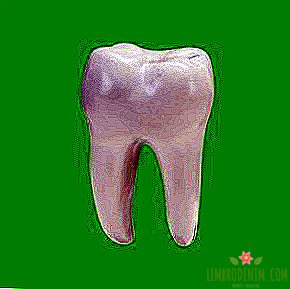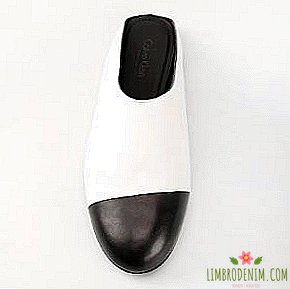Question to expert: Do teeth need calcium?
Text: Marina Kuznetsova
RESPONSES TO THE MAJORITY OF US QUESTIONS we are all used to searching online. In this series of materials we ask precisely such questions - burning, unexpected or widespread - to professionals in various fields.

It is believed that calcium in foods and nutritional supplements strengthens the teeth - and that during pregnancy, due to the need of the child for this element, calcium can “leave” the teeth. But is it really possible to nourish the teeth with calcium, ingested with food, "from the inside" - or in the same way wash it from enamel? And is it possible to replenish lost teeth with minerals "outside", with the help of toothpaste? We asked these questions to the expert.
Marina Kuznetsova
Dentist, author of the Dental Jedi Telegram channel
 The role of calcium for the human body is enormous: it is needed for strong healthy bones, muscle contraction, heart and nervous system activity, normal blood coagulation and hormone secretion. Almost all the body's calcium is in the bones and teeth in the form of hydroxyapatite - and it is to this compound that they owe their density. On the circulatory system, extracellular fluid, muscles and other tissues account for only about 1% of calcium. Bone tissue is a kind of reservoir: if necessary, it releases the amount of calcium needed by the body for urgent needs, after which it is rebuilt.
The role of calcium for the human body is enormous: it is needed for strong healthy bones, muscle contraction, heart and nervous system activity, normal blood coagulation and hormone secretion. Almost all the body's calcium is in the bones and teeth in the form of hydroxyapatite - and it is to this compound that they owe their density. On the circulatory system, extracellular fluid, muscles and other tissues account for only about 1% of calcium. Bone tissue is a kind of reservoir: if necessary, it releases the amount of calcium needed by the body for urgent needs, after which it is rebuilt.
As a medical practitioner, I often hear phrases like "I had caries of several teeth, I was advised of vitamins with calcium, but did not help" or "I do not want to treat caries, can I just take calcium to strengthen my teeth?". But the snag is that soon after the eruption of the tooth, it becomes impossible to “saturate” with minerals from the bloodstream - that is, those that came from food and were absorbed into the blood.
The fact is that the level of calcium and other essential minerals in the tissues of the tooth is formed at the stage of its development with the participation of genetically incorporated mechanisms. After the teeth have completed their formation, after the eruption of the tooth and the end of its mineralization, the process of absorption of minerals directly from the bloodstream stops. In other words, you can drink vitamins as much as you like, but if you are not a child or a teenager, the density of the teeth cannot be affected in this way, as they are already fully formed.

You can drink plenty of vitamins, but if you are not a child or a teenager, the density of the teeth in this way does not affect
As for pregnant women, indeed, during pregnancy, for the harmonious formation of the baby’s tissues (including teeth), more calcium is needed, but there is no evidence that the child “takes” calcium from the mother’s teeth when it is lacking. Problems with teeth during and after pregnancy are associated with other factors - for example, an increase in the acidity of the oral cavity due to belching or vomiting. After vomiting, when the enamel is under the influence of acid, you need to rinse your mouth - but brushing at this point can damage your teeth. Deterioration of hygiene also contributes to the caries of pregnant women, including due to gingivitis (inflammation of the gums), associated with changes in hormonal levels, and increased consumption of carbohydrates, when a woman is advised to eat for two, and refusal to visit the dentist and professional teeth cleaning.
In this case, an experiment was conducted in which women throughout their pregnancy received calcium supplements. In their children, the prevalence of caries for twelve years was lower than in children of women who did not take calcium in addition. It turns out that pregnant women should take calcium to strengthen the teeth of the future child, and to improve their own condition - regularly visit the dentist, to establish hygiene and follow the diet.
In another placebo-controlled study, elderly people (over 65 years of age) received supplements containing calcium and vitamin D for three years, and after that the observation continued for another two years. As a result, the loss of teeth in those who took calcium, but not placebo, was less - but this was due to the strengthening of the jawbone, that is, in fact, better fixation of the teeth in the jaw, and not the strengthening of enamel.

Cheese is no substitute for thoroughly brushing your teeth twice a day - but it can be a good addition to caries prevention.
Enamel consists of so-called enamel prisms, and they, in turn, are calcium hydroxyapatite. At the initial stage of caries under the influence of acid from hydroxyapatite enamel minerals are “washed out”; This process is called demineralization. Gradually a “hole” is formed in the enamel - a carious cavity. White dull stains on the teeth, the so-called chalky - as if drawn with chalk - are also caries, but only at the earliest stage, and it can still be cured without a drill and fillings. To this end, in contrast to demineralization, enamel is remineralized - that is, it is saturated with mineral components.
For remineralization use fluorides (fluorine compounds) and calcium - not in pure form, but in the form of amorphous calcium phosphate. It is proved that the best results can be achieved by applying the combination of this calcium compound with fluorides. Pastes, rinses, amorphous calcium phosphate foams, as well as professional remineralization at the dentist are suitable for this purpose. It turns out that to strengthen the teeth, that is, to saturate them with minerals, can only be from the outside, but not from the inside.
Experts from the American Academy of Pediatric Dentistry recommend eating a slice of cheese for dessert - and this is also one of the options for remineralization. Cheeses such as Swiss, cheddar and mozzarella, stimulate the secretion of saliva, which cleans the mouth of food debris and acts as a buffer, neutralizing acids. Calcium and phosphorus contained in cheese also reduce or prevent acidification of saliva and contribute to the remineralization of enamel. Of course, cheese is not a substitute for thorough brushing your teeth twice a day and regular check-ups at the dentist - but it can be a good addition to caries prevention for people with weak enamel, especially if you replace them with sweets.
Of course, prevention of caries is in the second place remineralization, and in the first place - prevention of demineralization in all possible ways. To do this, it is necessary to eliminate the factors that contribute to caries: bacteria that produce acid, and their nutrient medium, carbohydrates. This means that for the prevention of caries it is necessary to thoroughly brush your teeth, regularly undergo professional hygiene, eat a balanced diet and do not abuse carbohydrates, especially in the mouth for a long time - like caramel or toffee.
Photo: shutswis - stock.adobe.com, sveta - stock.adobe.com




